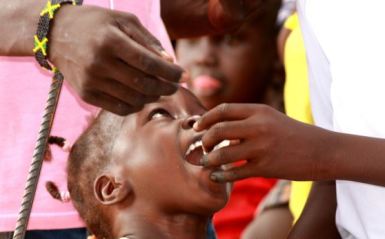Sudan takes measures to prevent cholera spread from South Sudan
July 12, 2015 (KHARTOUM) – Sudan’s health ministry on Sunday said that it has raised the alert level and took precautionary measures to prevent the transmission of cholera from South Sudan.

Recently, international health organizations said there has been serious threat of cholera in South Sudan, warning the disease could spread like wildfire this rainy season unless measures were taken to curb it.
According to South Sudan’s health ministry, the number of cholera cases in Juba has reached 733 with 33 deaths so far recorded. Over 60 cases were reportedly registered in Jonglei state.
The United Nations Children’s Fund (UNICEF) pointed that children under 5 comprise 13% of the cases.
Sudan’s state minister of health, Sumaia Akad, underscored the need to swiftly deal with all reports of cholera cases, stressing that no watery diarrhoea cases have been reported in the border states.
She said the federal ministry of health has raised the alert level and put a set of precautionary measures to prevent the transmission of cholera from South Sudan into the border states.
The minister told the pro-government Sudan Media Center (SMC) that a unified plan was set for all border states to report any suspected case of watery diarrhoea.
She disclosed that a plan to secure all border crossings have been put in place besides training of the cadres and distribution of pamphlets to quarantine units at the Khartoum airport and border crossings.
Akad added that preventive doses would be supplied for those coming from South Sudan, announcing formation of a technical committee that would meet on a weekly basis to assess the situation in South Sudan and the health conditions of the South Sudanese refugees in Sudan.
Since 20 May, nearly 30,000 South Sudanese have sought refuge in Sudan. Sudan currently hosts over 172,000 South Sudanese refugees, who represent more than 50% of the entire refugee population in the country.
Meanwhile, the deputy governor of East Darfur state, Ali al-Tahir Sharif, said the state’s health ministry has launched intensive vaccination, environmental sanitation and early detection campaigns in coordination with border localities, emphasising that the state is free from any epidemics.
He stressed the campaigns would continue until the spread of cholera is being contained in South Sudan, noting the movement of the pastoralists between the two countries is proceeding according to the health plan developed by the security committees in the border localities.
On Saturday, the secretary general of the Dinka Ngok chiefdom, Kual Malik Scholl, disclosed that local authorities in Abyei have applied precautionary measures to prevent the transmission of cholera from South Sudan to the contested region.
He told the SMC that more than 60 people from the Dinka Ngok have been infected and died of the disease in South Sudan, saying that tribal leaders in Aneet and Agok and several other areas agreed to prevent movement of the residents to South Sudan.
The tribal official also said they decided to deny citizens of South Sudan entry to Abyei and its surroundings until the disease is being controlled.
He pointed to the outbreak of the disease in South Sudan and the difficulty of providing treatment to the infected due to lack of medical staff and drugs resulting from the ongoing conflict.
Last year a cholera outbreak in South Sudan infected more than 6,000 people and killed 167, according to World Health Organization figures.
Cholera is a fast-developing, highly contagious infection that causes diarrhoea, leading to severe dehydration and possible death.
South Sudan’s cholera outbreak intensifies the humanitarian needs of a poor country facing a violent conflict that has displaced more than 2 million people as government troops try to put down a rebellion.
(ST)
